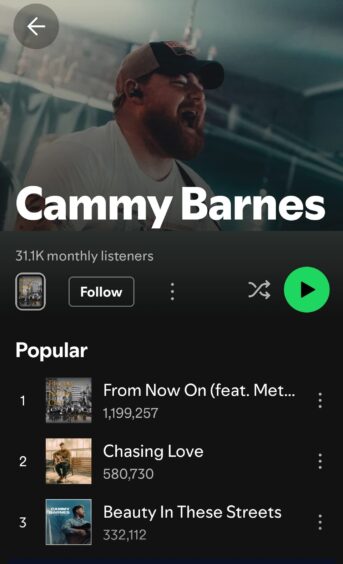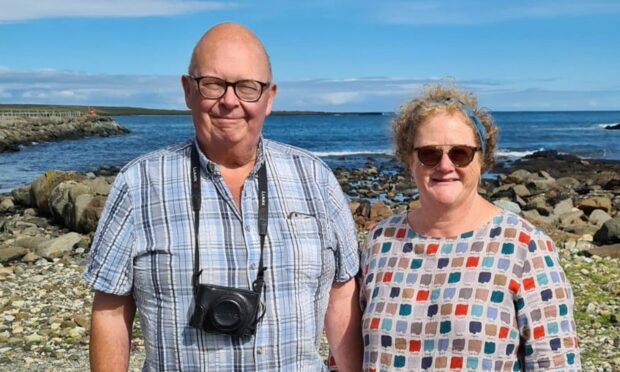Fife singer Cammy Barnes has revealed the “heartbreaking” reason he can “barely afford to record music”.
The Methil barber, who made the Britain’s Got Talent semi-finals in 2023, says he is struggling to make money from streaming platform Spotify.
Despite having more than 30,000 monthly listeners on the app and millions of streams of his songs, Cammy says the income he receives from the platform is not enough to fund his career.
He is calling for a better deal for musicians.
‘I love Spotify as a user… but an album doesn’t seem possible’
In a post on X, Cammy said: “I love Spotify as a user and how easy it is to listen to my favourite music.
“As an artist, it’s heartbreaking! I’m at the point I can barely afford to record music.
“Currently, an album doesn’t seem possible.
“I hope one day there’s a shift and young artists get the pay they deserve. It’s in everyone’s interest.”
The singer did not elaborate on how Spotify payments should change.
Spotify – which made record profits of more than €1 billion (£860 million) last year – has previously been criticised for how it compensates artists.
Some musicians have claimed they earn as little as 0.003p per stream of one of their songs.
However, the Swedish firm – which has about a 50% share of the UK streaming market – says UK recording artists generated £750m in royalties on its platform in 2023.
Independent artists and labels also experienced a record year on the platform, a report said.
Spotify also defends its payments process on its website, saying: “We distribute the net revenue from premium subscription fees and ads to rightsholders.
“To calculate net revenue, we subtract the money we collect but don’t get to keep.
‘Spotify doesn’t pay artist royalties according to a per-play rate’
“This includes payments for things like taxes, credit card processing fees, and billing, along with some other things like sales commissions.
“From there, the rightsholder’s share of net revenue is determined by streamshare.
“We calculate streamshare by tallying the total number of streams in a given month and determining what proportion of those streams were people listening to music owned or controlled by a particular rightsholder.
“Contrary to what you might have heard, Spotify does not pay artist royalties according to a per-play or per-stream rate; the royalty payments that artists receive might vary according to differences in how their music is streamed or the agreements they have with labels or distributors.”
Cammy and Spotify have both been contacted for further comment.












Conversation